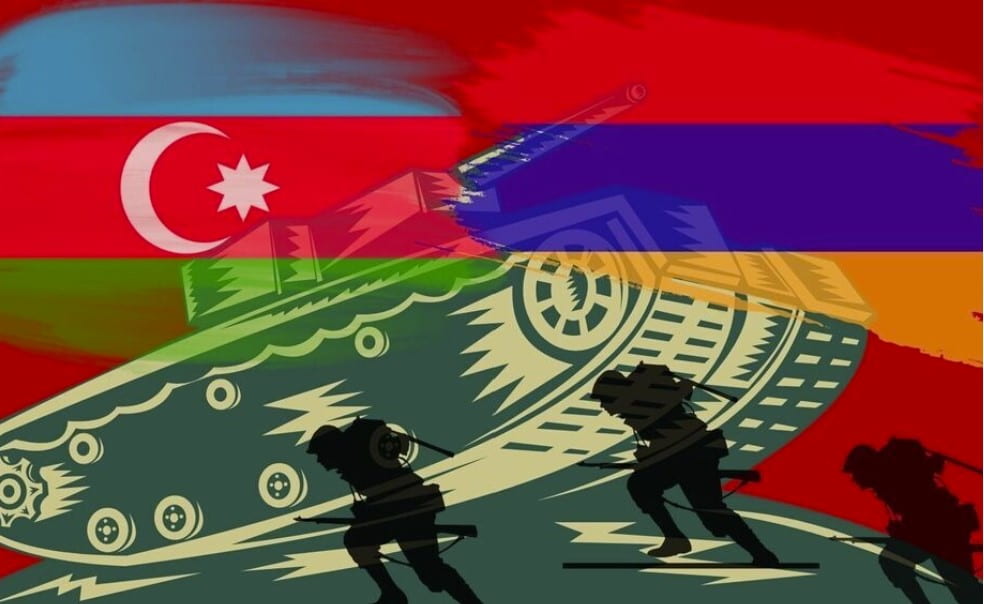The Nagorno-Karabakh conflict reached a dramatic end on September 19, 2023, when the Azerbaijani military ended the self-proclaimed Nagorno-Karabakh Republic, and almost its entire Armenian population fled to Armenia. Meanwhile, Armenia now faces a humanitarian crisis of refugees from Karabakh, while Azerbaijan demands the opening of the Zangezur corridor to connect with its Nakhichevan exclave to the southwest of Armenia. Russia, in turn, distracted by a war in Ukraine, has lost its leverage over the South Caucasus, leaving Armenia to seek new partners in the West. The West, at this moment, also concerned about Ukraine and the crises in the Middle East, has shown little interest in the South Caucasus.
In this seminar, six experts will discuss the current situation in this part of the South Caucasus. They will explore the causes and consequences of the Third Karabakh War, the region’s future, and the foreign policy goals of Armenia and Azerbaijan. They will also analyze the interests and roles of prominent international actors, such as Russia, the USA, Iran, Turkey, the EU, and France, who might have their own particular interest in the South Caucasus.
Introductory remarks: Sebastien Peyrouse, Director of The Central Asia Program.
Speakers
– Nona Shahnazarian is Associate Researcher at the National Academy of Sciences in Yerevan, Armenia, and head of the Center for Independent Social Research Armenia, also in Yerevan. She has conducted extensive fieldwork in Russia, Armenia, Georgia, the USA, and Nagorno-Karabakh, and has published on the issues of gender, war, migration, memory, and diaspora in the Caucasus and Russia. She has run the regional office of the Women in War Think Tank in Yerevan since 2015. She is deeply involved in Armenian-Azerbaijani regional and international peacemaking initiatives.
– Ahmad Alili is a researcher in international public policy and regional security of the South Caucasus, the Eastern Partnership countries, and neighboring regional powers. He is part of several peacebuilding initiatives supported by the EU, UN, and Partnership for Peace Consortium. Currently, he is the director of the Caucasus Policy Analysis Centre (CPAC), a Baku-based independent think tank promoting regional integration in the South Caucasus. He is also a lecturer at the Academy of Public Administration on the role of nonstate actors in regional security, geopolitics, public management, and good governance.
– Arzu Geybulla is an Azerbaijani columnist and writer with a special focus on digital authoritarianism and its implications on human rights and press freedom. Arzu has written for Al Jazeera, Eurasianet, CODA, Open Democracy, and Radio Free Europe, with a byline on CNN International. She is also a regional editor for the South Caucasus and Turkey at Global Voices. In the past, Arzu has been involved in numerous cross-border confidence-building projects within the scope of the Imagine Center for Conflict Transformation and other projects focusing on peaceful coexistence between Armenia and Azerbaijan.
– Alexander Iskandaryan is a prominent expert on politics, nationalism, and the contemporary history of Armenia, the South Caucasus, and Eurasia. He is a political scientist and the Director of the Caucasus Institute in Yerevan, Armenia. He has authored numerous works on these topics, presented papers, and has talked at numerous conferences.
– Gerard Toal (Gearóid Ó Tuathail) is a Political Geographer and Professor at Virginia Tech’s campus in the greater Washington DC area. He is the author of Critical Geopolitics (1996) and coauthor of The Geopolitics Reader (1998, 2006). He has published widely on geopolitics and territorial conflicts after the collapse of Yugoslavia and the Soviet Union. He coauthored Bosnia Remade: Ethnic Cleansing and Its Reversal (2011), wrote Near Abroad: Putin, the West and the Contest for Ukraine and the Caucasus (2017), and has just finished Oceans Rise Empires Fall: Why Geopolitics Hastens Climate Catastrophe (2024), all published by Oxford University Press.
Moderator
Mikail Mamedov holds a PhD in History from Georgetown University, where he is also a Lecturer in History and the Liberal Studies Program of the School of Continuing Studies. His multiethnic Azeri-Armenian family arrived in the US back in 1996, in the wake of the outbreak of the Karabakh conflict. He holds an MA from The George Washington University and a Diploma in History from Moscow Lomonosov State University. He has authored numerous articles on the history of the Caucasus, and on contemporary literature and the Karabakh conflict.

